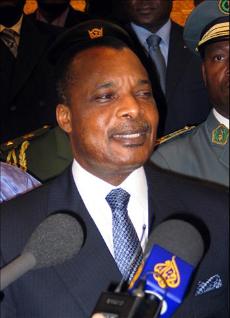On Jan. 30, at an African Union summit, Sudanese president Omar al-Bashir was blocked from becoming leader of the AU for the second time. The following day an AU peacekeeper was shot in the war-torn Sudanese region of Darfur. Instead of al-Bashir receiving the position, members of the AU decided to elect President John Kufuor of Ghana.
According to The Boston Herald, “Sudan’s government has been accused of retaliating against civilians and supporting paramilitary groups from nomadic Arab tribes blamed for some of the worst atrocities in the conflict.”
Sophomore Becky Pittman thinks such allegations may be one of the reasons the AU blocked al-Bashir from becoming their next elected leader.
“It seems like they don’t want al-Bashir to treat all of Africa the way he treats his own country,” Pittman said.
Tension has existed between al-Bashir and the AU for sometime now. In September 2006, the AU threatened to pull peacekeeping troops out of Darfur if al-Bashir did not allow United Nation peacekeeping troops into Darfur.
Currently, the AU is still handling the Darfur situation and U.N. peacekeeping troops have not been deployed. However, at the summit, al-Bashir agreed to allow deployment of hybrid U.N.-AU peacekeeping troops.
Archbishop Desmond Tutu spoke at the summit and urged leaders not to elect al-Bashir.
“Sudan’s President Mr. Bashir longs to be given the AU’s presidency. The AU cannot allow itself to comfort the oppressor.” Tutu said, according to BBC.
“I appeal to those leaders meeting at the AU summit to stand up to tyranny and stand by the people of Darfur,” said Tutu, speaking of al-Bashir’s failure to bring peace to Darfur and his attitude towards efforts being made by different peacekeeping groups in and out of Darfur.
Sophomore Eric Steginsky holds sentiments similar to Archbishop Tutu, believing that by blocking al-Bashir’s bid to lead the AU they are sending him a message.
“By passing Omar al-Bashir over, The African Union is showing that they want peace,” Steginsky said. “They are showing al-Bashir that they will not tolerate his refusal to allow U.N. peacekeeping troops in Darfur.”
The situation in Darfur largely dominated the summit’s talks.
U.N. Secretary General Ban Ki Moon also spoke at the summit.
“The toll of the crisis remains unacceptable,” said Moon, according to the BBC, speaking of the estimated 250,000 dead and the 2.5 million displaced refugees. “Together we must work to end the violence and scorched-earth policies adopted by various parties, including militias, as well as the bombings which are still a terrifying feature of life in Darfur.”
Despite the fact that rebel groups, known as The Janjaweed, signed a peace treaty in May, violence in Darfur increased, permeating into neighboring countries of Chad and Central African Republic.
First-year Chelsea Hornick-Becker feels that the violence stems from deeper problems and that peacekeepers may not be a cure-all for the Darfur situation.
“A lot of people care, but they don’t know why it really happens,” Hornick-Becker said, referring to Africa’s long history of colonization, instability and bloodshed. “(The violence) did not come out of the blue.”
Hornick-Becker has questioned whether deployment of U.N.-A.U. peacekeeping troops will really be as beneficial as some think.
Archbishop Desmond Tutu elaborated on the importance of peacekeeping troops in Darfur.
Tutu said, “(Darfur needs) a strengthened force with U.N. troops and a robust mandate to protect the innocent.”
Tutu also stressed the importance of immediate action.
Tutu said, “They have suffered terribly, and they cannot wait any longer.

